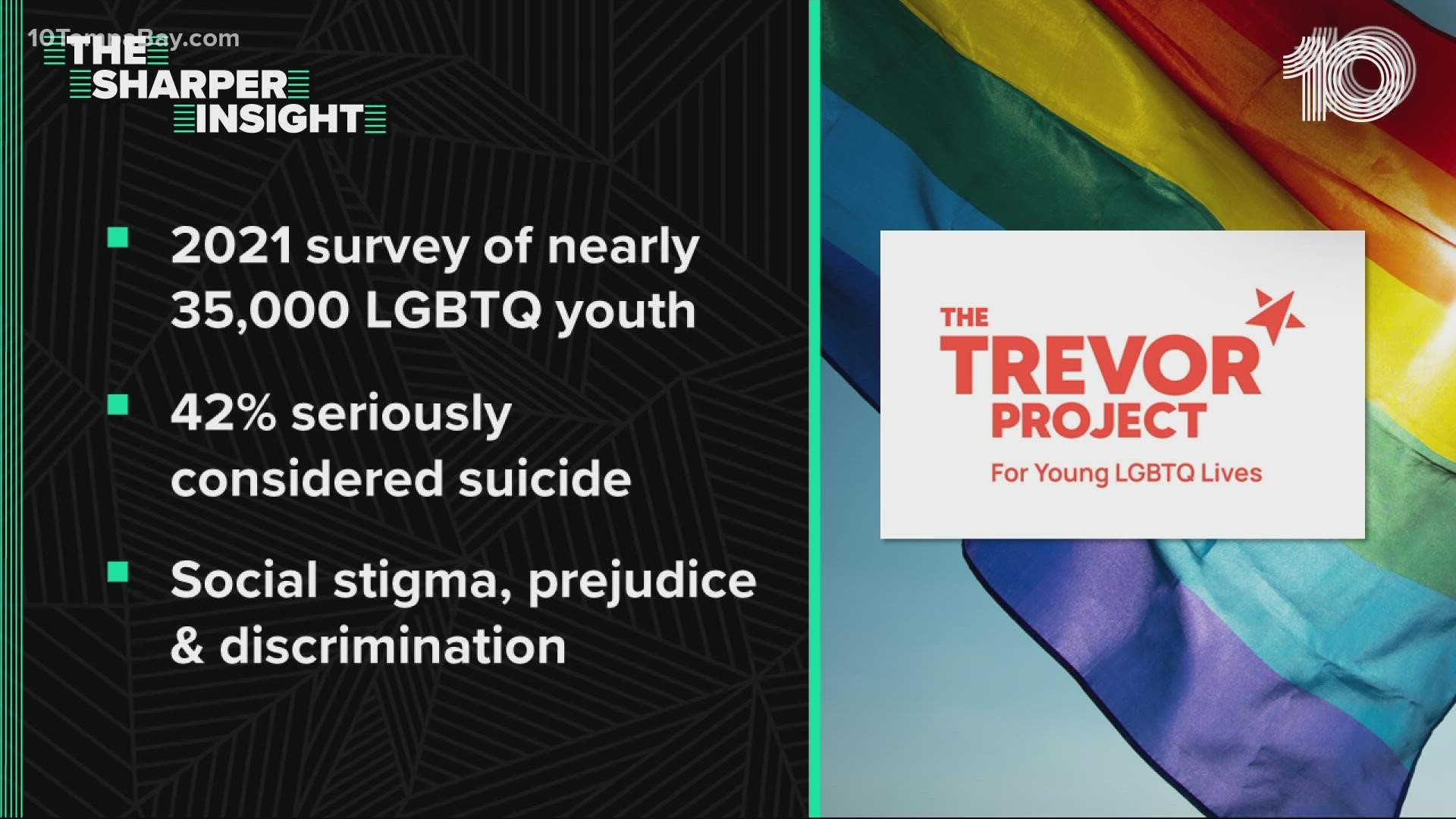TAMPA, Fla. — Several groups like Equality Florida, the ACLU and the American Foundation for Suicide Prevention have spoken out against the "Parental Rights in Education" bill over concerns about how it impacts LGBTQ youth.
The controversial Florida bill, dubbed "Don't Say Gay" by critics, passed by a 22-17 vote and now heads to Gov. Ron DeSantis' desk. The legislation limits classroom instruction on sexual orientation and gender identity.
In a 2021 survey, researchers with The Trevor Project found 42% of LGBTQ youth seriously considered attempting suicide in the past year.
Mental health experts say having a safe space for students to talk is crucial to dealing with issues like social stigma, prejudice and discrimination associated with sexual orientation.
Natasha Pierre, a mental health educator, says often there aren't parents available to have these types of conversations with kids.
"Taking away school as an option to have some of these conversations really negates the reality that the family unit has changed. Years ago when two parents were at home and one parent was home when the children came home from school, that's not happening across the nation, especially over the last two and a half years," Pierre said.
The President of the Crisis Center of Tampa Bay says LGBTQ youth are dealing with several things all at the same time, and they are looking for a human connection.
"They're struggling with issues at home. They're struggling with issues at school, in the community, and so it's that anxiety and depression that oftentimes is the starting point of the conversation," Clara Reynolds said. "In this age of social media of texting, you lose that human to human interaction, so for those kids who are calling, those young adults who are calling, they are looking to make a connection with another human being."
That's why the Crisis Center of Tampa Bay has people who are trained to be the catalyst for conversation and helping young people. There are resources where students can feel safe to talk including counselors, faith leaders and the Crisis Center by calling 2-1-1.
Both Pierre and Reynolds say this is the time for the community to come together to offer spaces for kids to ask questions and talk.

